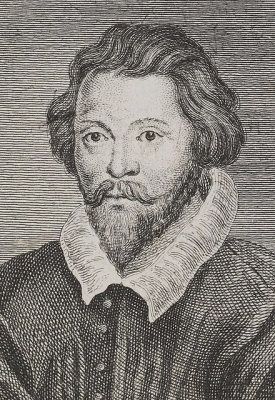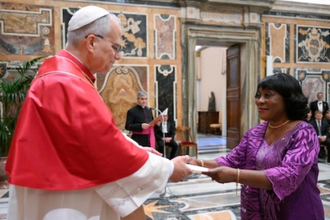Westminster Cathedral Choir to sing William Byrd's Mass settings in his 400th anniversary year

Detail of 18th century engraving by Gerard Vandergucht, after Niccolò Haym. Image public domain.
To commemorate the 400th anniversary of the death of William Byrd, Westminster Cathedral Choir will perform the entirety of his Gradualia, settings of music for Mass, during choral services at Westminster Cathedral.
William Byrd (1540 - 1623) was an English composer of the late Renaissance period, and considered to be one of the finest and most significant composers of his time and of his nation. He was a Catholic during the religious turbulence of the late 1500s when Catholicism was forbidden and many prominent Catholics were martyred for their beliefs.
The two collections of settings of the Mass Proper that make up the Gradualia were written for clandestine use by English Catholics.
As Cardinal Vincent explains: "William Byrd's settings for the Mass were first heard in secret, in private chapels and back rooms, attended by Catholics who risked their livelihoods and by priests who risked their lives. Yet despite the private nature of these first performances, his music is full of life and emotion and communicates the vitality of a living faith, standing strong against the difficulties of the time. Every note, every phrase, is a prayer. Our prayer today stands in continuity with his."
It is highly symbolic that these settings will be sung during the same Masses for which they were composed, but in the very public setting of Westminster Cathedral in the 400th year of Byrd's death.
The music was intended to help Catholics mark the different seasons of the Church's calendar, and all 109 pieces will be performed at the appropriate time of the year.
Highlights include a special Requiem Mass at the Cathedral on Tuesday 4 July 2023 - the very date of Byrd's death in 1623, as well as 17 Masses with complete Mass settings, sung in the Cathedral for the very first time.
The celebration begins on Sunday 18 December 2022 and will run until Monday 25 December 2023. All are most welcome.
Download the full programme for the commemoration of William Byrd's 400th anniversary HERE


















